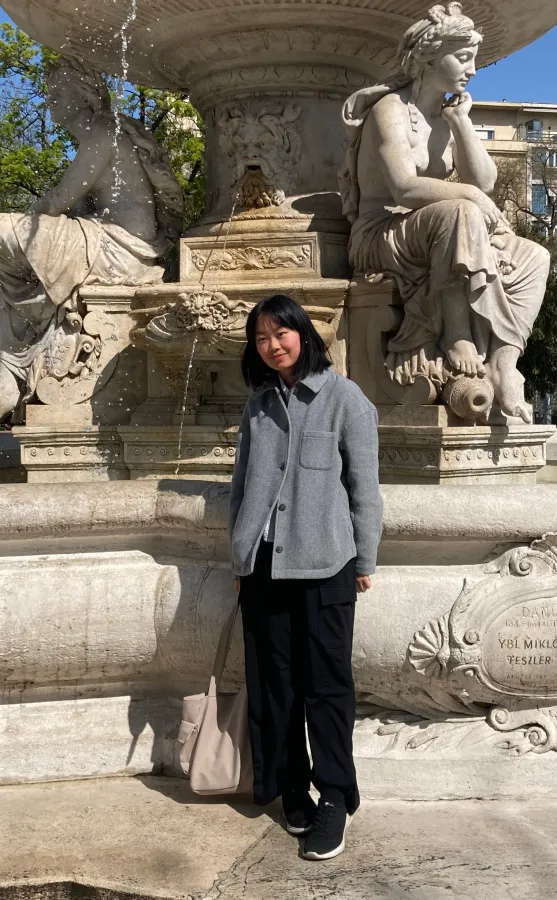Angelina Tija '26

Angelina Tija '26
When Angelina Tija ’26 arrived at Swarthmore College, she carried with her more than a decade of classical music experience. Through elementary and middle school, Tija studied violin and piano, and focused primarily on violin in high school. That focus would begin to shift when she arrived at Swarthmore.
Tija enrolled in Music 48, a course which provides private lessons and encourages ensemble participation to Swarthmore students. Though she’d concentrated her efforts on violin in high school, deep down she still felt like more of a pianist than anything else. She decided to pivot back to piano, and private lessons quickly became more than a course requirement, they became an outlet.
“Private lessons and practice time were a way to step away from my other stress, and for an hour a day, just focus on this one thing,” she said. Piano became a refuge, a space that preserved a sense of autonomy and self-expression outside the demands of classes, activities, and deadlines.
But the story didn’t end at the practice room. To fulfill the ensemble requirement, Angelina decided to join Swarthmore’s Gamelan Semara Santi, a Balinese percussion orchestra. Although she initially joined the ensemble on a whim, learning and performing a style of music so different from the traditional Western music she’d studied previously greatly expanded her musical knowledge.
Unlike the individual practice that had shaped much of her musical upbringing, Gamelan required deep listening, collaboration, and trust among players. The interlocking rhythms and communal performance style demanded that musicians respond to each other in real time.
“I really got a sense of community,” Tija reflected. “Growing up I did piano lessons, but it was never in an ensemble setting. I played violin in the school orchestra, but I never really felt connected to it.”
That sense of connection also challenged her in new ways. Music became not just a private practice but a public act, a performance that asked her to share her identity with others.
“In terms of community, it’s scary to be asked, ‘what do you like?’ because now I have to show a piece of myself. I think studying music, and especially performing—being on stage, letting yourself be in a place where you are watched—definitely challenges you in that way.”
As Angelina looks back on her years at Swarthmore, she sees her musical journey not as a linear path but as an ongoing process of rediscovery. Returning to piano gave her the freedom to reconnect with music on her own terms, while Gamelan opened her to a collective form of expression she had never experienced before.
What began as a course requirement became something far more meaningful: a way to balance the pressures of college, explore new traditions, and find belonging through sound. An astrophysics major with a double minor in music and education, she plans to pursue graduate studies after Swarthmore. Angelina is adamant that she’ll find ways to continue her musical exploration, and is even open to the possibility of taking up the violin again.
--
Favorite music course at Swarthmore? Music 12, “Harmony, Counterpoint, and Form 2.”
Favorite music-making experience at Swarthmore? A two-week study abroad trip with the Galaman ensemble to Bali. I’m so grateful for the opportunity to learn about Balinese culture and perform where Galaman orginated– it felt like all my hard work paid off!
What will you miss most about Swarthmore? Being a five minute walk away from any of my friends.
What sound or noise do you love? Campus at eight in the morning, coming out of my dorm, with no one outside. It’s just so peaceful.
What sound or noise do you hate? This high-pitch squeaking in Sci 128; I didn’t know where the noise was coming from. So annoying.
What’s the last song/piece you played on your phone? ‘Square’ (2017) by Yerin Baek.



